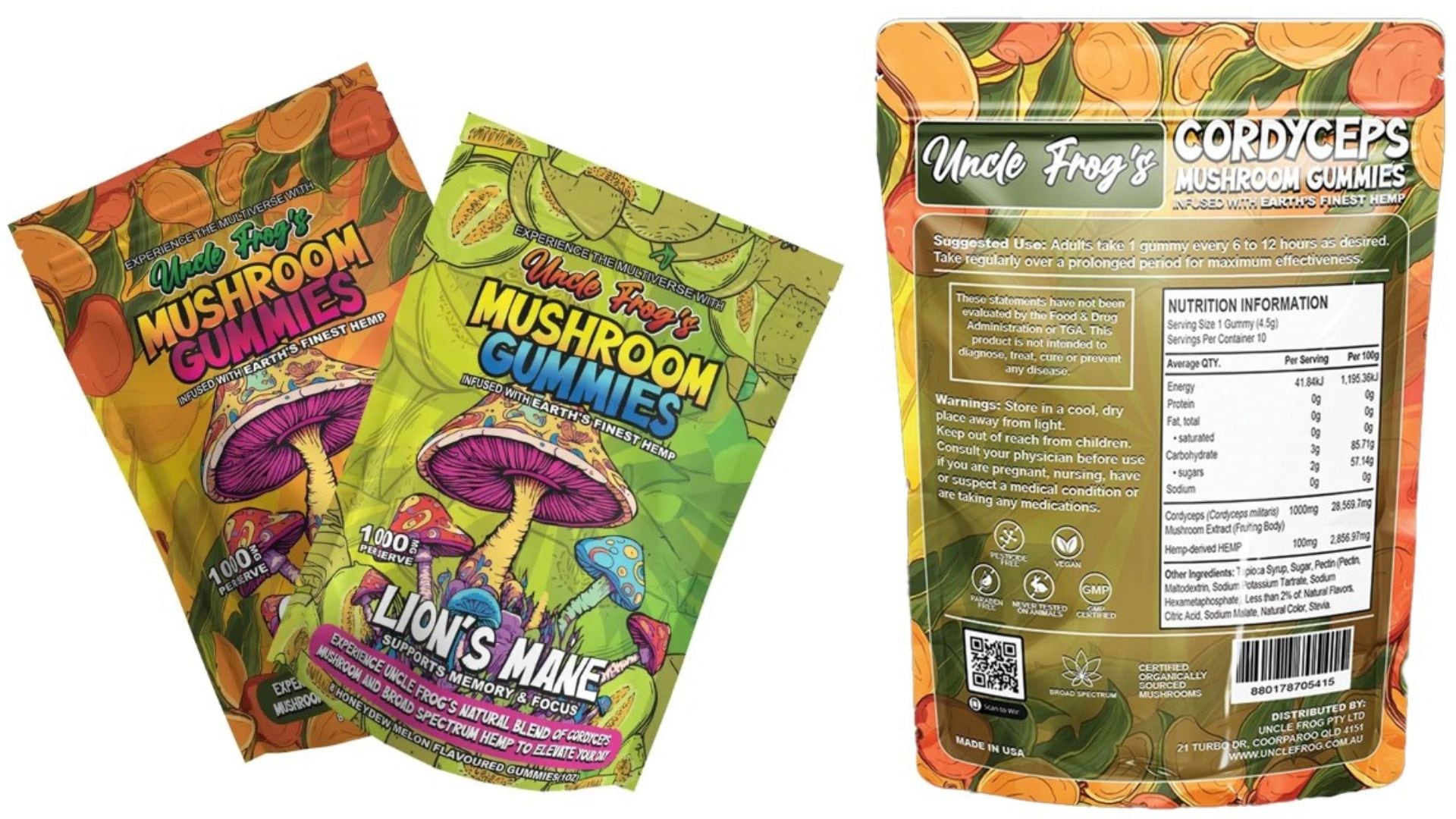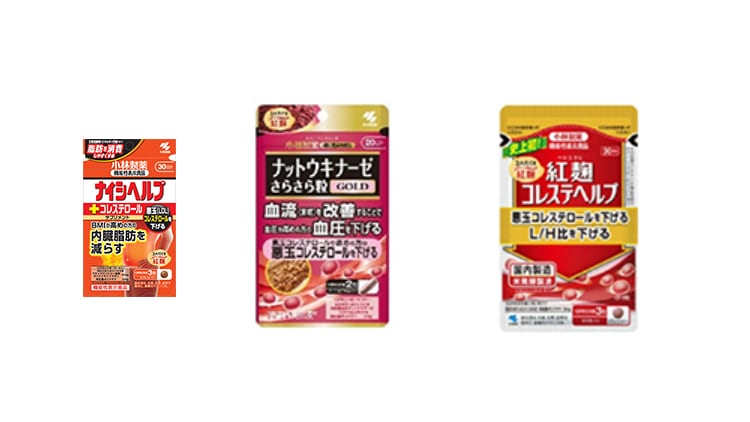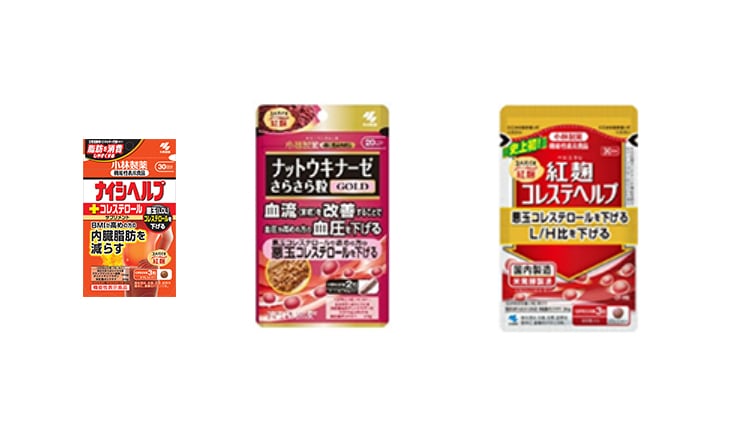A New South Wales (NSW) Health statement issued on 26 June reported that at least five people have been treated in NSW hospitals, and there are also hospitalisations interstate. All Uncle Frog’s products have since been recalled. NSW Health is working with other jurisdictions to further investigate the issue after patients reportedly suffered from symptoms such as disturbing hallucinations, seizures, persistent vomiting, racing pulse, and anxiety.
These symptoms are consistent with cannabis overdose and do not appear to be linked to lion’s mane and cordyceps.
“Lion's Mane and Cordyceps are generally safe, making adverse events rare for these particular mushrooms. Adverse events would only occur if the mushrooms were misidentified and contained other substances. However, the symptoms observed are very consistent with high doses of cannabis use,” said Professor Jon Wardle, Foundation Director of the National Centre for Naturopathic Medicine at Southern Cross University.
Hemp is cannabis with less than 0.3% delta-9-tetrahydrocannabinol (THC). It also contains cannabidiol (CBD), which is known for health benefits that include reducing anxiety and insomnia as well as easing mental disorders like psychosis and depression.
THC is the compound that causes the “high” or psychotropic effects that people associate with marijuana use.
The lion’s mane flavour claims to support memory and focus, while the cordyceps one is said to provide an energy boost. Both are infused with broad-spectrum hemp, which contains CBD. However, it should not have any THC, or contain only trace amounts of it.
“I believe this situation likely involves an overdose of THC or other compounds. The purpose of broad-spectrum hemp extract is to eliminate any psychotropic substances. It seems there may have been a manufacturing error, leading to the inclusion of these psychotropic compounds. Consequently, instead of receiving the extract without psychotropic elements, the extract with these compounds was used, resulting in a significant overdose. The issue with gummies is that they can be easily consumed in large quantities, which is especially concerning for someone feeling anxious,” said Dr Ian Musgrave, Senior Lecturer in Pharmacology at the University of Adelaide.
“It appears that there is THC present, as suggested by the side effects, whether from contamination, adulteration, or deliberate misinformation, the exact cause remains unclear,” said Wardle.
According to Musgrave and Wardle, eating too much of lion’s mane and cordyceps would likely cause digestive issues like diarrhoea or an upset stomach instead of the psychotropic effects reported by those patients.
Lion’s mane and cordyceps can be used in medicines but not food
“Neither lion’s mane nor cordyceps have a history of safe use in food so they are considered novel ingredients that have not been approved and is therefore illegal. The hemp ingredient is approved as a novel food provided it has low levels of THC. Health authorities did the recall as a food recall as it was a swift response, given that many people were ill [from consuming Uncle Frog’s],” said Lydia Buchtmann, CEO of health promotion charity Food Safety Information.
Wardle said that both cordyceps and lion's mane are permitted for use by Chinese medicine practitioners but are not allowed for sale as a pre-prepared food product.
“Lions mane and cordyceps are herbal medicines that must be approved by the TGA through the Australian Register of Therapeutic goods. There are a number of cordyceps products on the TGA's Australian Register of Therapeutic goods. While there are no obvious mentions of lion’s mane in the TGA, it is found in some herbal products,” said Musgrave.
“There is some legal ambiguity regarding its sale as a fresh or dried mushroom. This is concerning because [Uncle Frog’s] is manufactured in the United States, and the Australian company primarily handles sales and distribution without being involved in production. Although they claim to have conducted tests, these have not been verified in the US. If these were classified as a therapeutic good under the TGA, the overseas manufacturer would need to be GMP-accredited by the TGA, providing additional protections. However, these safeguards do not apply to imported food,” said Wardle.
Foods are regulated by the Food Standards Australia New Zealand (FSANZ), while the TGA oversees drugs. According to Musgrave, Uncle Frog’s products likely fell through regulatory gaps because they were largely sold online, making it difficult to track and police the manufacturer.
It is easy for products to fall between the food and medicine categories, as making a therapeutic claim for a functional food is usually self-assessed. The TGA provides a guidance tool, essentially a checklist and decision tree, for a manufacturer to determine whether its product should be classified as a food or medicine, but the TGA does not assess these claims. Manufacturers are solely responsible for this self-assessment, often leading to situations like this where a product that should have been classified as a therapeutic good causes harm before being flagged.
“This regulatory gap is concerning as more people move away from traditional pills and lotions towards gummies, powders, and other consumable therapeutic products that straddle the line between food and drugs. The regulations make a clear distinction between food and medicine, but the public is increasingly blurring this line. The public's perception is evolving much faster than the regulatory environment. Efforts are underway to close these loopholes, but progress is not keeping pace with the changes,” said Wardle, who feels there could be clearer guidelines for manufacturers and better coordination between TGA and FSANZ, which can prevent similar issues in the future.
He added that consumers should be educated on the fact that foods are not subject to the same quality controls as imported medicines. However, it is the manufacturers’ responsibility to be transparent about their product ingredients.
Musgrave said that lion’s mane has been used in traditional Chinese medicine for centuries, typically for treating stress, anxiety and depression. Its modern usage includes improving memory and it has been suggested to have a neuroprotective effect. Cordyceps are traditionally used to boost energy and strength, improve immunity, and enhance kidney function.
“Lion's Mane is often used as a nootropic, enhancing mental alertness and focus. Due to their nootropic and neurocognitive effects, they are frequently combined with psychoactives, ranging from mild substances like caffeine and nicotine to stronger psychedelics, for treatment purposes. They are used to boost the neurocognitive effects of various herbal or nutritional medicines,” said Wardle.
According to FSANZ, food produced from low-THC hemp can legally be sold and consumed in Australia and New Zealand provided they meet the requirements of the Australia New Zealand Food Standards Code. All low-THC hemp seed food products must comply with the provisions contained in the Code, which includes mandatory limits on the levels of THC and CBD in hemp food products. Two of such requirements are the seeds must be from the Cannabis sativa plant, the leaves and flowering heads of which contain no more than 1% THC; and the total combined amount of THC and THC acid in the seeds does not exceed 5mg per kg of seeds.




